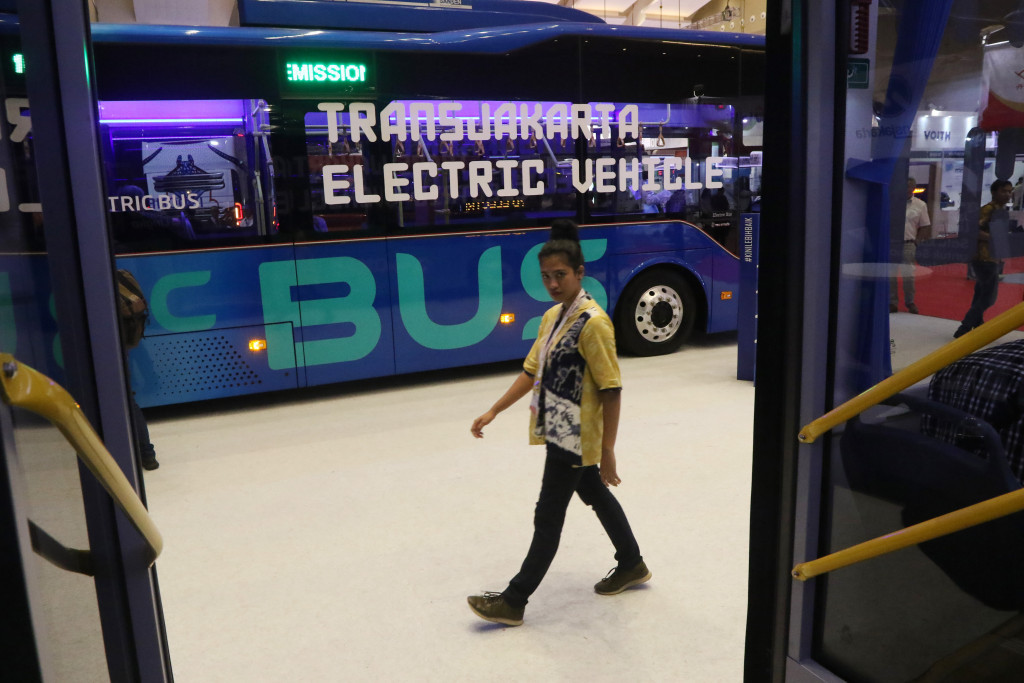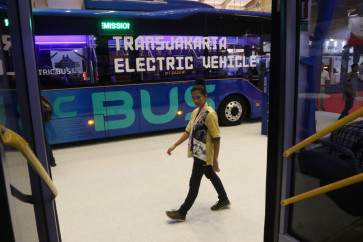Popular Reads
Top Results
Can't find what you're looking for?
View all search resultsPopular Reads
Top Results
Can't find what you're looking for?
View all search resultsCan electric vehicles reduce greenhouse gas emissions?
Improved urban air quality is one of the frequent arguments evoked in favor of PEV adoption in Indonesia. However, there remains at least one important question that is rarely discussed, namely: How clean is the electrical power used to meet the additional demand from PEVs? In other words, would the adoption of PEVs actually contribute to a reduction of Indonesia’s greenhouse gas (GHG) emissions?
Change text size
Gift Premium Articles
to Anyone
P
eople living in the urban areas of Indonesia may soon see plug-in electric vehicles (PEVs) running on their streets now that President Joko “Jokowi” Widodo is expected to roll out regulations to accelerate the market penetration of battery operated vehicles.
Improved urban air quality is one of the frequent arguments evoked in favor of PEV adoption in Indonesia. Electric vehicles emit very low levels of air pollutants that are harmful to human health such as nitrogen oxide, sulfur oxide and particulate matters. However, there remains at least one important question that is rarely discussed, namely: How clean is the electrical power used to meet the additional demand from PEVs? In other words, would the adoption of PEVs actually contribute to a reduction of Indonesia’s greenhouse gas (GHG) emissions?
Industry Minister Airlangga Hartanto has explained that the government’s goal to accelerate the development of low carbon-emission vehicles is one of its measures to achieve Indonesia’s nationally determined contribution (NDC) target in the Paris climate agreement to reduce GHG emissions by 29 percent under a business-as-usual scenario by 2030. The Industry Ministry’s road map targets increasing the sale of electric vehicles to 20 percent by 2025, comprising both PEVs and non-plug-in hybrid electric vehicles (HEVs).
Unfortunately, studies indicate that increasing the number of PEVs on Indonesia’s roads may not result in lower emissions. Why not? The answer has to do with how power is generated in Indonesia combined with the way in which PEVs are charged.
Conventional internal combustion engine vehicles (ICEVs) emit GHGs through the ignition of a mixture of fuel and compressed air. In the case of PEVs, GHGs, principally in the form of carbon dioxide, are emitted mostly during electric power generation that occurs at power plants.
The problem is that, in Indonesia, coal-fired power plants currently produce around 56 percent of the country’s electricity, followed by gas-fired plants (25 percent), oil plants (8 percent) and nonfossil energy sources (11 percent) including hydro and geothermal power stations. With this energy mix, Indonesia’s electricity system emits on average around 840 grams of carbon dioxide for each kilowatt-hour of produced electricity.
A study on the influence of electric vehicle penetration on the economic, energy and environmental sectors in ASEAN conducted by the Economic Research Institute for ASEAN and East Asia elaborates and simulates a scenario where, starting in 2025, power generation in Indonesia achieves a cleaner mix that emits only an average of 535 grams of carbon dioxide per kWh.


















